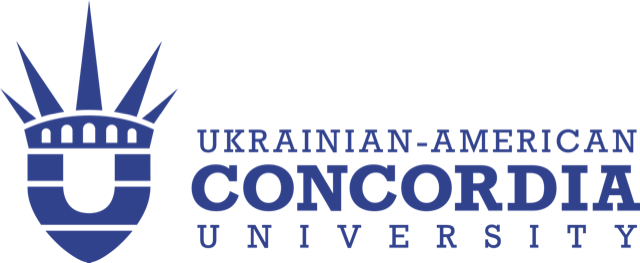Business Courses: 27 credits
- Advanced Accounting
- Advanced Finance
- International Business Law
- International Management
- International Marketing
- IT Applications/E-Business
- Operational Management
- Statistical Business Analysis
- Contemporary Problems in International Economics
Agribusiness Courses: 12 credits
- Concepts in Global Agriculture
- Global Food Supply and Quality Control
- Current Regulation and Standards for Foods and Cosmetics in Domestic and International Trade
- Seminars in Agribusiness
Internship Program and Capstone Thesis: 6 credits
Total Degree and Certificate Credits: 45
- Has two degree-track options to meet specific needs of students and working professionals
- Accepts transfer credits for prior academic coursework, professional certification, or demonstrated business expertise
- Has two start dates for international participants – September or February
- Has an option for summer semester study
- The 3 semester program may be completed in either 12 months or 18 months
- Either degree-track option can be custom designed to meet the needs of a specific business or government group
Program Options:
1. Courses + Internship and Thesis, 45 credits
- 13 total courses: 9 courses in Business + 4 courses in Global AgriFood Industry, 39 credits
- Internship and supervised Capstone Research Thesis, 6 credits
- This degree program is accredited by FIBAA of Germany (https//www.fibaa.org) and recognized by the U.S. Council for Higher Education (https//www.chea.org) and subsequently Great Britain, Austria, Switzerland, the Netherlands, as well as Germany and the United States. This option includes a Dual Diploma authorized by the Ukrainian Ministry of Education.
2. Courses only Option, 39 credits
- Same as Option 1 but without an Internship or Capstone Thesis
- This degree program is accredited by FIBAA of Germany (https//www.fibaa.org) and recognized by the U.S. Council for Higher Education (https//www.chea.org) and subsequently Great Britain, Austria, Switzerland, the Netherlands, as well as Germany and the United States. It does not include a Ukrainian government dual diploma.
Option One Highlights
- Ideal for those who desire an internship within an agribusiness enterprise as a precursor to a career in agribusiness and who wish to complete a comprehensive research thesis applicable to agribusiness industry solutions
- Participants currently employed in agribusiness may earn internship credit for their ongoing employment
- The research thesis can be designed to address a specific solution of need to their current employer or industry sector
- Can be customized for corporate and government groups to meet specific curriculum needs
- This option requires 18 months to complete
Option Two Highlights
- Ideal for international participants seeking international accreditation
- Ideal for those currently employed in agribusiness or those who do not wish to pursue an internship or complete a comprehensive research thesis
- Can be customized for corporate and government groups to meet a 12 month time frame and specific curriculum needs
- This option may be completed by an individual in 12 months depending on enrollment or 18 months if desired
Program Tuition
- Option 1: $14,000
- Option 2: $12,000
Academic Scholarships for outstanding individuals are possible
Corporate and government group-sponsorship discounts are available
This Joint MBA Agribusiness Program leads successful students to the Rutgers University Certificate and Ukrainian-American Concordia University Diploma
Course Descriptions: Rutgers University
Rutgers University is ranked top 25 in the United States and top 100 worldwide, recognized particularly for its achievements in science and innovation. Courses taught by Rutgers faculty, for the UACU Agribusiness Administration MBA Program, are part of the curriculum of the Master in Science with Business Program in the School of Graduate Studies.
Concepts in Global Agriculture
The course is designed to take a critical look at the global food situation and the challenges faced by modern agriculture. Included are the globalization of goods, services and capital for agriculture that is fundamental to the future of developing countries and has major implications for the fight against poverty and sustainability of the environment. Agriculture has become an important global issue as food price volatility has led countries to reexamine their development strategies.
Global Food Supply and Quality Control
The course is focused on understanding quality management in global supply chain through supply chain optimization, process management, new technologies and regulatory management systems. Special emphasis will be placed on the global perishable food supply chain and the technologies and quality management systems implemented to ensure product quality and safety.
Current Regulation and Standards for Foods and Cosmetics In Domestic and International Trade
The course introduces students to the legal and regulatory systems that govern the production, labeling and distribution of foods and cosmetics, both domestically and internationally. The course will highlight key issues in the structure and application of foods and cosmetic laws in the United States and in critical international markets, including North America, Latin America, Europe and Asia. Students will also receive an introduction to the roles played by legal systems and lawyers in adjudicating disputes and advancing policy. The course will be presented by practitioners who have represented regulated companies and will present industry as well as consumer and government perspectives.
Seminar Series in Global Agribusiness
This seminar series addresses current issues and various specialized areas of expertise in world agribusiness with a particular emphasis on supply chain management and international trade in agriculture and agribusiness products. Seminars are conducted by worldwide industry, government and academic experts.
Course Descriptions: Ukrainian-American Concordia University (UACU)
UACU is a private university, internationally accredited by FIBAA (Bonn, Vienna, Zurich) in Europe, recognized by CHEA in the United States. It is Ukraine’s leading university in Business Administration Programs – BBA and MBA, teaching exclusively in English and maintaining the highest ethical and academic standards.
Advanced Accounting
This module focuses on practical techniques of financial and managerial analysts, financial controllers’ and financial directors’ work in multinational companies. The course includes theory, practical applications and problem-solving techniques. It aims to enable graduates to construct balance sheet and P&L out of sales reports and management reports, to work in US GAAP conceptual framework; qualitative characteristics of financial information. It provides understanding and apply various analysis techniques to evaluate and interpret a company’s production and sales position.
Advanced Finance
This course covers many advanced finance topics, with the emphasis on valuation techniques and managing financial and investments. It is corporate-oriented and includes practical applications and problem-solving techniques. After some introductory coverage, students are going to learn how to diversify and manage stock portfolios, and how to apply various valuation models and techniques to projects and businesses. Other topics will include bonds, dividends, WACC. Advanced topics of financial investments include unsystematic risk, appraisal ratio, coefficient of determination, Z-beta, and Z-alpha. The team project includes a real time stock contest game, where students shall manage their stock portfolios on the US financial markets.
International Business Law
This module focuses on the fundamentals of business law with respect to economic action on international markets which are highly influenced by globalization as well as the fundamentals and challenges in media law regarding the soaring propagation in the previous years. In particular, it will elaborate on the importance of relevant fields of law for the firm and the legal challenges in workplace reality.
International Management
This module gives an overview of management with special consideration to the leadership challenge concerning individuals, teams and organizations. It provides an overview of the challenges, development trends and policy decisions in international management. Based on theoretical foundations and established cultural concepts, approaches are presented for developing new markets. Through these methods, the business perspective (strategies, intercultural negotiations, etc.) and the market or end user perspective will be adopted. The students will learn various theoretical approaches to explain the behavior of individuals and groups. Ultimately, they will be able to apply these approaches for management problem solving. In addition to explanation and prediction, the design of incentives and organizational structures will be a theme. Case studies are used for teaching these skills in particular.
International Marketing
The main aim of the course is to provide students with the understanding of the importance and challenges of branding in an international and domestic context. It also focusses on adapting a global product to a local market, spotting trends, market research, information gathering; supply chain to and from the local market; globalization, legal and political influences, developing markets. To explore the use of instruments of international management in business activities to achieve competitive advantage and maintain long-run profitability.
IT Application in Business
This module gives an integrated view on business-related information systems. In modern organizations, there are very few organizational units that can work without the support of information systems. Consequently, every employee will have contact with an ERP system (e.g. SAP or MS Navision) at their workplace.
The module Business Software aims to enable graduates to realize, analyze and manage the application areas, potentials and the organization-wide diffusion of Business Software in a company. It provides means and directions for future IT professionals (e.g. CIOs) to make decisions about the selection, the evaluation and the use of Business Software. The module Business Software builds up on a fundamental prior knowledge about business management. It covers the most important business areas in a company: Sales, Marketing, Procurement, Production, Finance and Controlling. Due to its business management focus the module does not discuss technical issues such as databases or interfaces in detail.
Operational Management
Operational Management module examines the methods of planning, coordination, and execution of activities in transformation processes in organizations with the accent on operations strategy. The role of the operations strategy, lean operations, business process reengineering, enterprise resource planning is explored. Attention is given to methods that give the student the background of strategical thinking in the sphere of operational management. The course illustrates how managers can apply decisions to current and perspective conditions in organization, form adequate operations strategy and use operational management instruments.
Statistical Business Analysis
The course will explore applications of both descriptive and inferential statistics in a process of making effective decisions within an organization including developing reliable forecasts. The course starts with a quick overview of basic statistics topics and is followed by data analysis concepts which include hypothesis testing, one-way and factorial analysis of variance, multiple regression, and time series analysis.
Contemporary Problems in International Economics
This module aims at providing student with the knowledge for recognizing micro- and macroeconomic implications on domestic and foreign economies characterized by informational goods and globalization. Thus, the content of this module is the economy of information and network goods industries. It deals with the analysis of the specific economic and cultural characteristics of information goods, i.e. information goods, which circulate in digital networks. The module also elaborates on network goods and network goods industries. In particular, the module covers terms and definitions of net economy and its overall economic relevance.
Application Information
Applications now accepted for Fall 2019 enrollment.
Contact information:
Natalia M. Protsun
Dean of Management and Business Department
Director of Distance Learning Center
PhD of Economics, Associate Professor
Ukrainian-American Concordia University –
8/14 Turhenevs’ka Street, office 2-5, Kyiv 01054 Ukraine
+38 050 331 24 73
+38 044 236 19 16
natalia.protsun@uacu.edu.ua

